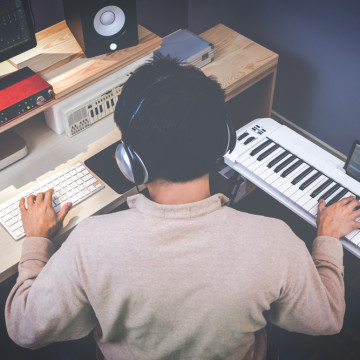

Year 11 Music Units 1 and 2
Overview
In Unit 1 you will develop an understanding of how music is organised. By performing, creating, analysing, and responding to music works that exhibit different approaches, you will develop an understanding of the possibilities of musical organisation. You will prepare musical works for performance which develop technical control, expression, and stylistic understanding. You create musical compositions that reflect your understanding, and you develop a knowledge of the musical language as you analyse and respond to a range of different styles.
In Unit 2, you focus on the way music can be used to create an intended effect. By performing, analysing, and responding to music that creates different effects, you explore and develop your understanding of the possibilities of how effect can be created. Through the creation of your own music, you reflect this understanding. There is a single ensemble repertoire choice that must be performed by everyone in the class as well as a solo piece of your own choosing. Composition tasks include a movie soundtrack and a song for the stage. You will learn to respond to music critically and increase your aural awareness.
Who is it for?
This subject is for anyone who loves music, is open to learning more about a broad range of musical styles and would like to further develop their performance and compositional skills.
It is a natural precursor to the Year 12 music subjects and is useful for anyone currently studying a musical instrument and hoping to go on to tertiary music courses.
Those who would like to understand more about music and its different elements will enjoy this subject.
What do you do?
Preparing musical works for performance, compose music using digital technology, study and analyse pieces, and develop aural awareness.
What skills do you need?
Concentration, patience, determination, and perseverance.
What skills do you develop?
- Aural recognition
- performance technique and stagecraft
- to respond analytically and critically to musical works
- to compose within the parameters of a creative brief.
Requirements
Auralia subscription (required for SAC 3 in both Units).
Things to think about
Begin using music technology and familiarise yourself with a Digital Audio Workstation (DAW) as well as notation software.
Things you can do now
Develop music theory skills to a Grade 2 minimum. Grade 2/3 theory and musicianship (AMEB equivalent) is ideal.
Things to have a look at
‘On The Corner’ by Liam Handley
Example of a Song for the Stage.